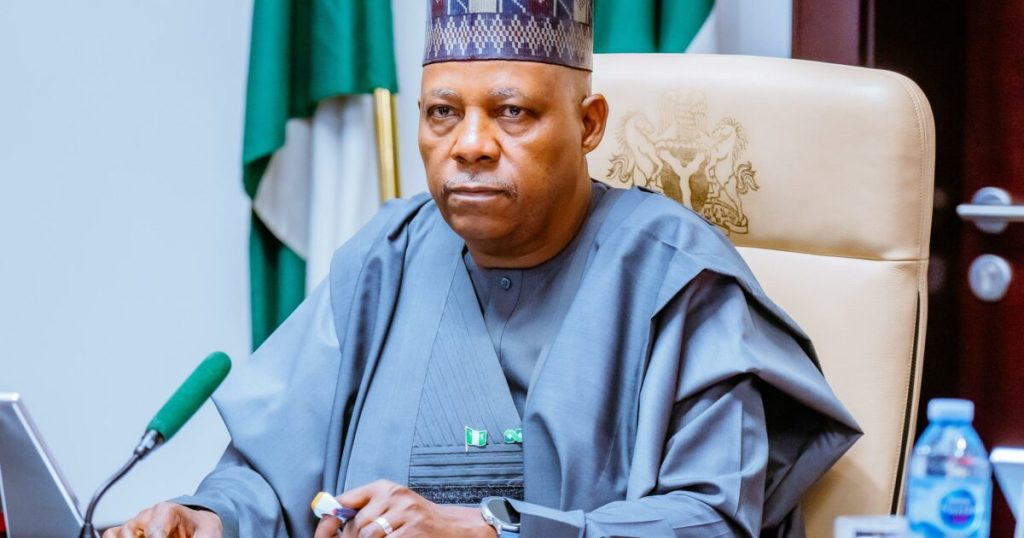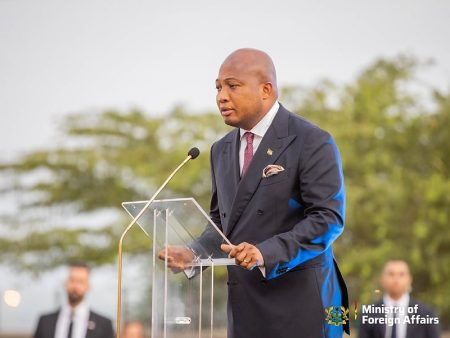The Dire State of Malnutrition in Nigeria and the Government’s Response
Nigeria is grappling with a severe malnutrition crisis, with nearly 40% of children under five suffering from its debilitating effects. This alarming statistic underscores the urgent need for comprehensive interventions to address this critical issue. Malnutrition robs these young children of their physical and cognitive potential, hindering their development and jeopardizing their future prospects. It’s not merely a matter of hunger; it’s about access to affordable, nutritious food that meets the specific needs of individuals. The impact ripples through the economy, education, and the very foundation of human capital, which is crucial for Nigeria’s growth and development. Recognizing the gravity of the situation, the Nigerian government, under President Bola Tinubu’s Renewed Hope Agenda, has prioritized nutrition as a central pillar of its national development strategy.
The Nutrition 774 Initiative: A Grassroots Approach to Combating Malnutrition
The cornerstone of this strategy is the Nutrition 774 Initiative, a flagship grassroots framework designed to address the challenges of malnutrition at the local level. This initiative is not merely a theoretical construct; it’s a practical, action-oriented approach meant to make a tangible difference in the lives of Nigerians, particularly those in the most marginalized and underserved communities. The core strength of Nutrition 774 lies in its adaptability. It empowers each of Nigeria’s 774 local government areas to tailor their responses to malnutrition based on their unique needs, cultural context, and available resources. This localized approach recognizes the diversity of Nigeria and the need for solutions that are relevant and effective at the community level.
The initiative has garnered significant support and endorsement from key bodies, including the National Economic Council and the National Council on Nutrition. To ensure effective implementation and oversight, a high-level governance body, the Nutrition 774 Strategic Board, has been inaugurated. This board comprises legislators, civil society representatives, and government technocrats – a diverse group of stakeholders committed to driving tangible results. This collaborative approach underscores the government’s commitment to moving beyond rhetoric and focusing on actionable outcomes. The goal is to institutionalize accountability and ensure that the initiative delivers on its promise to improve nutrition outcomes for all Nigerians.
Collaboration and Support from International Partners
Nigeria’s efforts to combat malnutrition have also received crucial support from international partners. The World Bank’s Accelerating Nutrition Results in Nigeria program has played a significant role in strengthening community-based nutrition systems in several states. Organizations like UNICEF and Médecins Sans Frontières (Doctors Without Borders) have been instrumental in implementing community-based management programs for acute malnutrition, providing life-saving interventions to those most in need. These partnerships highlight the global recognition of the malnutrition crisis in Nigeria and the collective responsibility to address it. The government acknowledges and appreciates the contributions of these partners, recognizing the importance of collaborative efforts in achieving sustainable progress.
The era of fragmented interventions is over. The government emphasizes the need for a unified approach, aligning all efforts with the Nutrition 774 framework and the national strategy. Parallel systems that dilute collective strength are no longer acceptable. The call to action is clear: one plan, one voice, one framework, and unified accountability. Anything less, the Vice President emphasized, would be a betrayal of the children who depend on the nation’s commitment to their well-being.
Legislative Action and Budgetary Prioritization
The National Assembly also plays a vital role in tackling malnutrition through legislative action and budgetary prioritization. The Vice President urged legislators to prioritize nutrition in budgetary allocations, ensuring that funding is consistent, adequate, and protected. Oversight functions should extend beyond mere audits and focus on measuring the actual impact of interventions. Policies must translate into tangible improvements in communities, and legislation should guarantee that nutrition financing is not a charitable act but a fundamental right. Two key legislative initiatives are currently under consideration: one proposes six months of paid maternity leave for nursing mothers, aligning with global best practices to support early childhood nutrition and maternal health, and the other aims to eradicate the unsafe sale of edible bulk oil in open markets, a practice that poses significant health risks.
The Speaker of the House of Representatives highlighted the significant economic cost of malnutrition, estimated at 12.2% of Nigeria’s Gross National Income, approximately $56 billion annually. Post-harvest losses alone account for $2 billion each year – a staggering figure that exceeds the combined nutrition budgets of several key ministries. The House Committee on Nutrition and Food Security is collaborating with stakeholders across all 36 states to translate policy into tangible action on the ground. Through capacity-building workshops and cross-sectoral consultations, the committee aims to address the root causes of malnutrition and strengthen systems for a rapid and effective response.
Nigeria’s Potential as a Food Basket and the Path Forward
Nigeria has the potential to become Africa’s food basket, given its vast arable land and resilient farming communities. The government is committed to championing nutrition-sensitive programs in federal and state budgets and advocating policy reforms to ensure robust oversight and accountability. The National Assembly is also actively working on transformative legislative initiatives, such as extending maternity leave and regulating the sale of edible oil, to protect vulnerable populations and invest in the nation’s future. The summit served as a platform not just for discussion but for a resolute commitment to action. The goal is not just to address the immediate crisis but to build a future where every Nigerian child has the opportunity to thrive and reach their full potential.
The fight against malnutrition is a collective responsibility. It requires the commitment and collaboration of all stakeholders: government, legislators, civil society, international partners, and the private sector. By working together, Nigeria can overcome this challenge and create a healthier, more prosperous future for its citizens. The summit’s message is clear: there are no spectators in this fight, only believers, builders, and Nigerians united in their determination to conquer malnutrition and secure a brighter future for generations to come.













